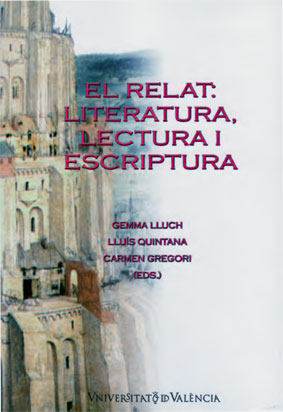Literary canon, school canon and hidden canon
DOI:
https://doi.org/10.7203/qf-elit.v18i0.3289Keywords:
literary canon, classics, school canon of readings Abstract
Abstract
The literary work is a product of a culture and a context. The meaning of the literary work must be interpreted in the framework of a cultural system that is continuously changing. Readers of the work, beyond the purely linguistic skills, should have the reading skills to enable them to access the literary encoding. This is essential when we address the most important aspects about teaching of literature: what to teach, how to keep alive the literature in a society with multiple technologies where coexists different reading mediums, what readings recommend, or when and how read the classics that should arrived in the appropriate age and in the right time.  Downloads
Downloads
How to Cite
-
Abstract7958
-
PDF (Español)10368
-
PDF (Català)4073
-
PDF816
Issue
Section
License
 Este obra está bajo una licencia de Creative Commons Reconocimiento-NoComercial-SinObraDerivada 4.0 Internacional.
Este obra está bajo una licencia de Creative Commons Reconocimiento-NoComercial-SinObraDerivada 4.0 Internacional.
Authors who publish with this journal agree to the following terms:
- Authors retain copyright and grant the journal right of first publication with the work simultaneously licensed under a Creative Commons Attribution License that allows others to share the work with an acknowledgement of the work's authorship and initial publication in this journal.
- Authors are able to enter into separate, additional contractual arrangements for the non-exclusive distribution of the journal's published version of the work (e.g., post it to an institutional repository or publish it in a book), with an acknowledgement of its initial publication in this journal.
- Authors are permitted and encouraged to post their work online (e.g., in institutional repositories or on their website) prior to and during the submission process, as it can lead to productive exchanges, as well as earlier and greater citation of published work (See The Effect of Open Access).




